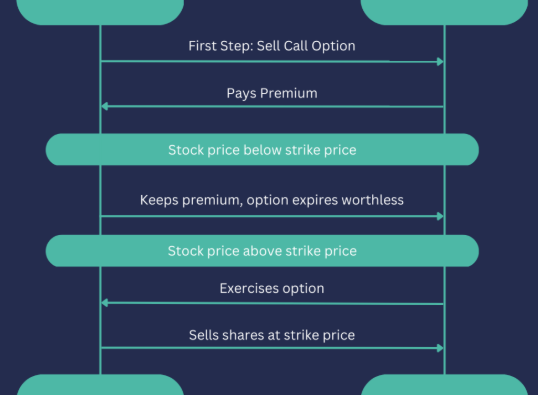
If you’ve ever been drawn to the idea of managing investments, making strategic financial decisions, and playing a pivotal role in wealth creation, then a career as a portfolio manager might be the perfect fit for you. This role goes far beyond analyzing numbers—it requires a deep understanding of market behavior, strong decision-making capabilities, and the ability to build strategies that align with client objectives.
Let’s explore what it takes to become a portfolio manager, from education and skill development to gaining relevant experience and certifications.
Understanding the Role of a Portfolio Manager
A portfolio manager is responsible for overseeing investment portfolios and making informed decisions on behalf of clients or firms. Their work involves selecting assets, evaluating financial markets, monitoring performance, and adjusting portfolios to optimize returns while managing risk. This role often requires a balance between technical knowledge and clear communication with clients to align investment strategies with long-term financial goals.
Key Responsibilities of a Portfolio Manager
- Investment Strategy Development: Crafting tailored investment plans based on the client’s goals and risk appetite.
- Asset Allocation and Diversification: Deciding how to distribute funds across various investment vehicles to reduce risk.
- Market Monitoring: Keeping a close eye on economic conditions, stock market trends, and geopolitical developments.
- Performance Evaluation: Continuously reviewing and refining portfolios to improve returns or mitigate losses.
- Client Communication: Explaining strategies, sharing updates, and making recommendations in a clear and accessible manner.
- Compliance Awareness: Staying informed on financial regulations to ensure all actions meet legal and ethical standards.
How to Become a Portfolio Manager: Step-by-Step Guide
Step 1: Earn a Bachelor’s Degree
Begin your journey by earning a bachelor’s degree in finance, accounting, economics, or a related field. This foundational education introduces you to the principles of investing, market operations, and financial reporting.
Step 2: Gain Industry Experience
Start your career with roles such as a junior financial analyst. These positions provide hands-on exposure to investment research, data analysis, and client reporting. With experience, you may progress to more senior analyst roles where strategic thinking and team leadership become central.
Step 3: Master the Essential Skills
To excel in portfolio management, develop a range of critical competencies:
- Analytical Thinking: Evaluate market conditions, security performance, and client needs.
- Risk Management: Identify and mitigate potential downsides in investments.
- Investment Acumen: Build solid knowledge in equities, bonds, mutual funds, and alternative assets.
- Communication: Convey complex financial concepts to clients and stakeholders effectively.
- Adaptability: Stay current with market innovations and policy shifts through ongoing learning.
Step 4: Obtain Certifications
Certifications can significantly boost your credibility. The Chartered Financial Analyst (CFA) designation is especially valuable in portfolio management. Other respected certifications include Certified Financial Planner (CFP) and licenses from financial regulatory bodies.
Step 5: Join Professional Organizations
Membership in finance-related associations, such as the Portfolio Management Institute or similar regional bodies, can open up networking opportunities and provide access to industry-specific resources and events.
Step 6: Apply for Portfolio Manager Positions
Once you’ve built your skills, earned relevant certifications, and gained sufficient experience, pursue portfolio manager roles. Tailor your resume to highlight strategic decision-making, investment results, and any leadership experience you’ve acquired along the way.
Portfolio Manager Career Progression
- Junior Analyst: Entry-level position focused on gathering and analyzing financial data.
- Senior Analyst: Assumes greater responsibility, supervises junior staff, and provides investment insights.
- Portfolio Manager: Oversees entire investment portfolios, sets strategy, and reports directly to senior leadership.
- Executive Roles: Some managers transition into Chief Investment Officer or partner-level roles, or even launch their own advisory firms.
Regulatory Requirements in India
Those managing portfolios in India must comply with regulations outlined by the Securities and Exchange Board of India (SEBI). Some of the current requirements include:
- A professional qualification in finance, such as a CFA.
- Successful completion of the NISM Series XXI-A and XXI-B exams.
- A minimum of two years’ experience in investment management for key staff.
- A minimum net worth of Rs. 5 crore for the firm offering portfolio management services.
Applying for a Portfolio Manager License in India
To become certified, here’s the general process:
- Submit your application with all required documents and a Rs. 1 lakh non-refundable fee.
- Await SEBI’s review and potential request for further information.
- If approved, pay the registration fee of Rs. 10 lakh to obtain your certificate.
- Renew your license every three years with a renewal fee of Rs. 5 lakh.
Always verify the latest details through SEBI’s official channels.
Average Salary and Job Outlook
Portfolio managers earn competitive salaries based on experience, firm size, and location. In India, the average annual salary is approximately ₹11.7 lakhs, while in the U.S., it stands around $78,500. Larger cities and firms often offer higher pay scales. The role is expected to grow steadily as more individuals and organizations seek professional investment management services.
Frequently Asked Questions
How long does it take to become a portfolio manager?
It generally takes 4–7 years, including education, experience, and certification.
Is a CFA necessary?
Not mandatory, but highly respected and beneficial for credibility and job prospects.
Is this career path difficult to enter?
It is competitive, but achievable with persistence, continuous learning, and relevant credentials.
Do I need an MBA?
An MBA can help, but it isn’t required. Finance-related graduate degrees are also valuable.
What should a resume include?
Highlight investment experience, analytical achievements, certifications, technical skills, and communication expertise.
Conclusion
Pursuing a career as a portfolio manager is both intellectually stimulating and financially rewarding. It requires a solid educational background, real-world experience, strong analytical abilities, and a commitment to ongoing development. Whether managing funds for individuals or institutions, a portfolio manager’s role has the power to influence financial futures and drive strategic growth. With the right mindset and preparation, you can thrive in this competitive and impactful profession.









